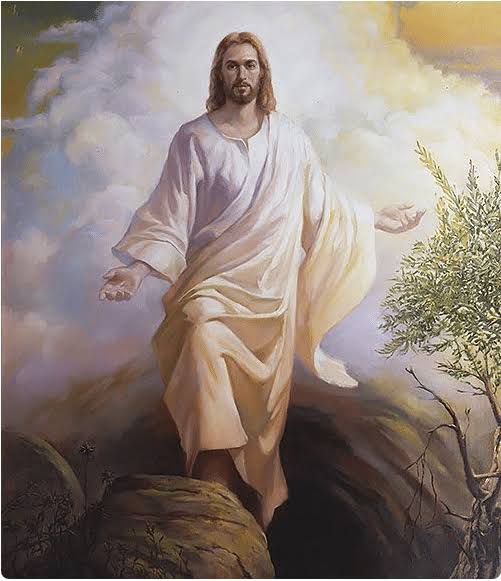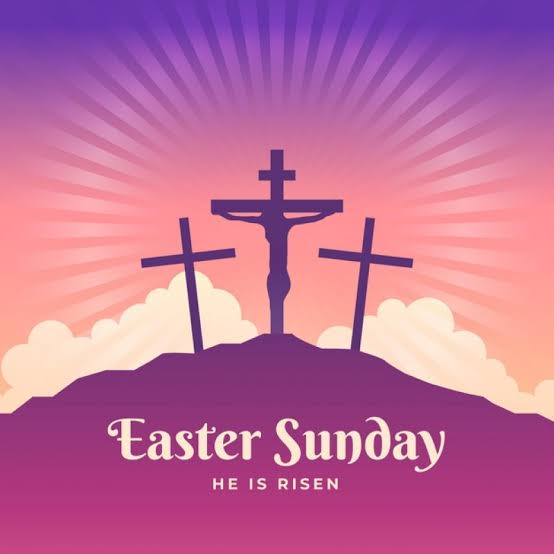Easter Sunday history and origin.
Easter Sunday is a Christian holiday that celebrates the resurrection of Jesus Christ. The holiday is preceded by Lent, a 40-day period of fasting, prayer, and repentance, and culminates in Holy Week, which includes Maundy Thursday, Good Friday, and Easter Sunday.
The origin of the word “Easter” is uncertain, but it is believed to have derived from the Old English word “ēastre,” which referred to the springtime goddess of fertility. In many languages, the name for Easter is derived from the Hebrew word “Pesach,” which means Passover, since Easter is celebrated around the same time as the Jewish holiday.
The celebration of Easter Sunday as the day of Christ’s resurrection can be traced back to the 2nd century AD. The date of Easter Sunday varies each year and is determined by the first Sunday following the first full moon after the vernal equinox. This means that Easter Sunday can fall on any Sunday between March 22 and April 25.
Today, Easter Sunday is celebrated by Christians around the world with religious services, family gatherings, and traditional meals. It is also marked by various cultural traditions, such as Easter egg hunts and the Easter Bunny, which have their origins in pagan celebrations of spring and fertility.
Pay Attention to Happy Easter wishes and greetings, messages and quotes
Easter Sunday traditions and celebrations around the world.
Easter Sunday is a Christian holiday that celebrates the resurrection of Jesus Christ. It is observed around the world and is a time of reflection, gratitude, and celebration. Here are some Easter Sunday traditions and celebrations from around the world:
- Easter Eggs: One of the most popular Easter Sunday traditions is the giving and receiving of Easter eggs. This tradition is believed to have originated in the early Christian church, where eggs were given to represent the new life that comes with the resurrection of Jesus. Today, Easter eggs are often decorated and exchanged as gifts.
- Easter Baskets: Another common tradition is the Easter basket, which is often filled with candy, toys, and other small gifts. In some countries, such as the United States, children participate in Easter egg hunts to find the eggs and treats hidden in the baskets.
- Easter Parade: Many cities around the world host Easter parades, where people dress up in their Sunday best and walk through the streets. The parades often feature floats, live music, and performances.
- Good Friday Processions: In many Catholic countries, such as Spain and the Philippines, Good Friday processions are an important part of Easter celebrations. These processions feature people carrying crosses and statues of Jesus and the Virgin Mary through the streets.
- Easter Vigil: In the Catholic Church, the Easter Vigil is a service held on Holy Saturday that celebrates the resurrection of Jesus. The service often includes the lighting of candles, the reading of Scripture, and the baptism of new members.
- Easter Feasts: Many families and communities celebrate Easter with special meals and feasts. In Greece, for example, it is common to eat lamb on Easter Sunday, while in Italy, people often eat Easter bread and cheese.
- Easter Bonfires: In some countries, such as Finland and Sweden, people light Easter bonfires on Holy Saturday. These bonfires symbolize the end of winter and the arrival of spring.
- Egg Rolling: In the United Kingdom, it is a tradition to roll hard-boiled eggs down hills on Easter Monday. The person whose egg rolls the farthest is considered the winner.
These are just a few of the many Easter Sunday traditions and celebrations from around the world. Regardless of how it is celebrated, Easter is a time of hope and renewal, and a reminder of the power of faith and love.

Easter Sunday religious significance for Christians.
For Christians, Easter Sunday is the most important holiday of the year as it celebrates the resurrection of Jesus Christ from the dead. It is a time to remember and reflect on the events leading up to the crucifixion and resurrection of Jesus, which are the central events of the Christian faith.
According to the Christian belief, Jesus was crucified on a Friday, which is now known as Good Friday. He was buried in a tomb, and on the third day, which is Sunday, He rose from the dead. This event is seen as the ultimate victory over sin and death, and it is celebrated as a triumph of life over death.
The resurrection of Jesus is significant for several reasons. First, it demonstrates God’s power and love for humanity. It shows that God is willing to overcome death and offer salvation to those who believe in Him. Second, it offers hope to believers that they too can have eternal life with God after death. Third, it serves as a symbol of forgiveness and redemption for all people.
Also see Good Friday prayers, messages, wishes, quotes, songs and images
The celebration of Easter Sunday is an important part of Christian worship and is marked with special church services, including the Easter Vigil and the Easter Sunday Mass. It is also a time for families and friends to come together and share in the joy of the resurrection through traditions such as Easter egg hunts and special meals.
Overall, Easter Sunday is a time for Christians to remember and celebrate the most important event in their faith – the resurrection of Jesus Christ. It is a time of reflection, gratitude, and renewal, and it offers hope and the promise of eternal life to believers.
Easter Sunday symbols and their meanings.
Easter Sunday is a Christian holiday that is rich in symbols that carry deep meanings and significance. Here are some of the most common Easter symbols and their meanings:
- Easter Eggs: Eggs are one of the most recognizable Easter symbols. They symbolize new life and rebirth, and the cracking of the egg represents the resurrection of Jesus Christ.
- Easter Bunny: The Easter Bunny is a symbol of fertility and new life. It is said to bring Easter eggs and treats to children on Easter Sunday.
- Cross: The cross is the most recognizable symbol of Christianity and represents the crucifixion of Jesus Christ. It is a symbol of sacrifice, redemption, and eternal life.
- Lilies: Lilies are a popular Easter flower and represent purity, innocence, and new beginnings. In Christianity, they are also a symbol of the resurrection of Jesus Christ.
- Palm Branches: Palm branches are often used in church services on Palm Sunday, which commemorates Jesus’ triumphal entry into Jerusalem. They are a symbol of victory and salvation.
- Lamb: The lamb is a symbol of sacrifice and purity in Christianity. It represents Jesus Christ, who is often referred to as the “Lamb of God” in the Bible.
- Hot Cross Buns: Hot cross buns are a traditional Easter treat that is marked with a cross on the top. The cross symbolizes the crucifixion of Jesus Christ, and the spices used in the buns represent the spices used to prepare Jesus’ body for burial.
- Purple Cloth: Purple cloth is often used during Lent, the 40-day period leading up to Easter. It represents penance, humility, and preparation for the resurrection of Jesus Christ.
These are just a few of the many Easter symbols and their meanings. Each symbol carries its own significance and serves as a reminder of the central events and beliefs of the Christian faith.
Easter Sunday recipes and meal ideas.
Easter Sunday is a time for family and friends to come together and celebrate. It is also a time for delicious food and special meals. Here are some Easter Sunday recipe and meal ideas:
- Roast Lamb: Roast lamb is a traditional Easter Sunday meal and symbolizes Jesus Christ, who is often referred to as the “Lamb of God” in the Bible. It can be served with roasted vegetables such as potatoes, carrots, and parsnips.
- Hot Cross Buns: Hot cross buns are a traditional Easter treat that is marked with a cross on the top. They can be served for breakfast or as a dessert.
- Easter Ham: A glazed Easter ham is another popular Easter meal that can be served with sides such as mashed potatoes and green beans.
- Deviled Eggs: Deviled eggs are a popular appetizer for Easter Sunday. They can be made with a variety of fillings, including bacon, cheese, and herbs.
- Easter Bread: Easter bread is a sweet bread that is often baked with Easter eggs nestled inside. It can be flavored with spices such as nutmeg and cinnamon.
- Carrot Cake: Carrot cake is a popular dessert for Easter Sunday. It can be made with cream cheese frosting and decorated with edible flowers.
- Spring Salad: A fresh and colorful spring salad can be a great side dish for Easter Sunday. It can be made with fresh greens, berries, nuts, and a citrus vinaigrette.
These are just a few ideas for Easter Sunday recipes and meals. The possibilities are endless, so be creative and enjoy the holiday with loved ones.


